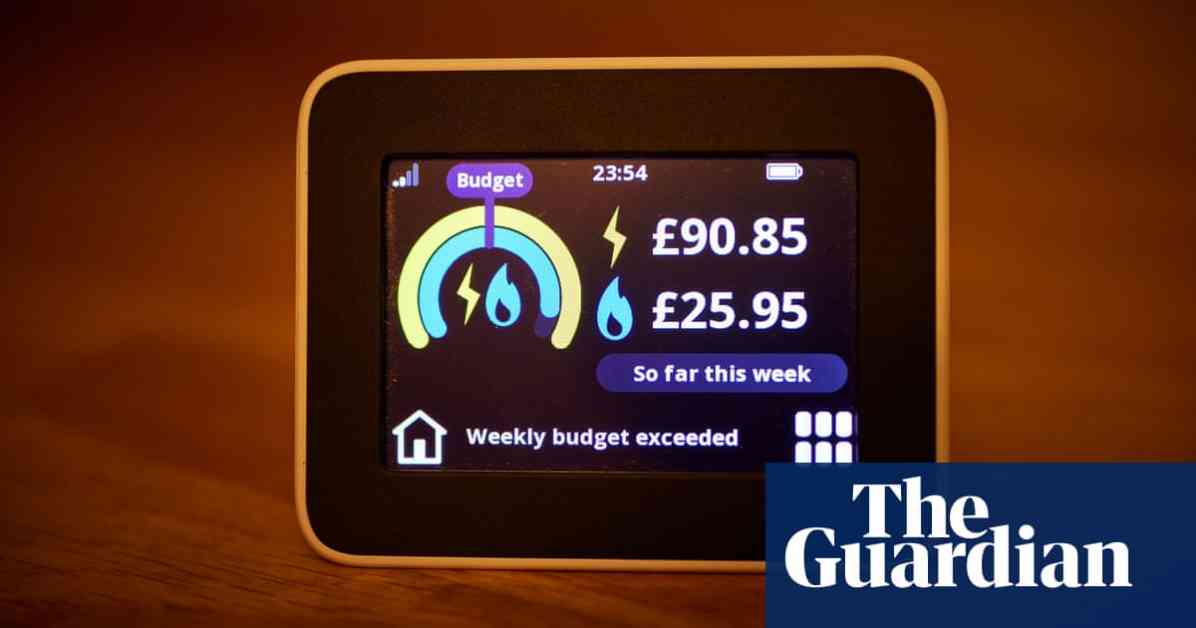Millions of vulnerable people are facing a potentially harsh winter ahead, as a combination of rising energy costs and government cuts to welfare schemes continue to put them at risk. Labour MPs and campaigners are sounding the alarm, urging Prime Minister Keir Starmer to extend key financial support programs to prevent a humanitarian crisis.
The Impact of Fuel Payments Cuts
Labour backbenchers are specifically calling on the government to reverse or mitigate the decision to end winter fuel payments for millions of pensioners. Additionally, they are urging an extension of the household support fund (HSF), which is set to run out in September. Without these crucial schemes in place, thousands of people could be at risk of losing their lives due to the cold this winter, especially with fuel prices expected to rise by an average of 10%.
The HSF was introduced in 2021 after the £20-a-week Covid increase to universal credit was withdrawn. It has since become a lifeline for households in crisis, providing vital emergency support to those in need. Labour MP Rachael Maskell of York Central expressed deep concerns about the levels of poverty in communities like York, emphasizing the urgent need for continued support. She stated, “There is real concern about the levels of poverty in communities like York. People can’t afford to get through the week, and without the additional protection of things like the household support fund, I don’t know how some people are going to get through the winter.”
Growing Concerns and Criticisms
Labour MP Clive Betts of Sheffield South East echoed these sentiments, emphasizing the government’s responsibility to prioritize helping the poorest in society stay warm during the winter months. There is a growing concern among Labour members and economists that the government’s focus on reducing public spending deficits is coming at the expense of pushing more people into poverty.
The refusal to lift the two-child benefit cap, along with the impending end of universal winter fuel payments and the potential discontinuation of the £1 billion HSF, has led to widespread criticism. The decision to restrict winter fuel payments to only those eligible for pension credit, effectively ending them for about 10 million pensioners, has sparked outrage among Labour MPs who argue that it was not part of the government’s mandate.
Many fear that the recent decision by the energy regulator Ofgem to increase the energy price cap will further exacerbate the situation, pushing more pensioners into fuel poverty. Derek Lickorish, chair of the energy supplier Utilita, warned that many pensioners would be forced to choose between heating and eating this winter.
Calls for Extended Support
Labour MP Clive Lewis of Norwich South has written to Shadow Chancellor Rachel Reeves urging her to extend the HSF beyond September. He highlighted the dire situation in Norwich, where three in 10 children are already living in poverty, warning that the number could significantly increase if the HSF is not extended. Clive Betts emphasized the importance of keeping the HSF operational, particularly for local authorities that rely on the fund to support at-risk households.
Sam Tims, a senior economist at the New Economics Foundation, criticized the government’s response to the crisis, stating that it does not appear to be commensurate with the scale of the problem facing low-income households. Despite these challenges, a government spokesperson assured the public that efforts are being made to support those in need, including protecting the triple lock, implementing the warm homes plan to insulate homes, and providing the warm homes discount.
In conclusion, the looming threat of a cruel winter for millions of vulnerable people underscores the urgent need for continued financial support and welfare schemes. As the government faces mounting pressure to extend key programs and address the growing crisis, it is essential to prioritize the well-being of those most at risk in our society. Failure to act decisively could result in dire consequences for countless individuals and families struggling to make ends meet during the cold winter months.












